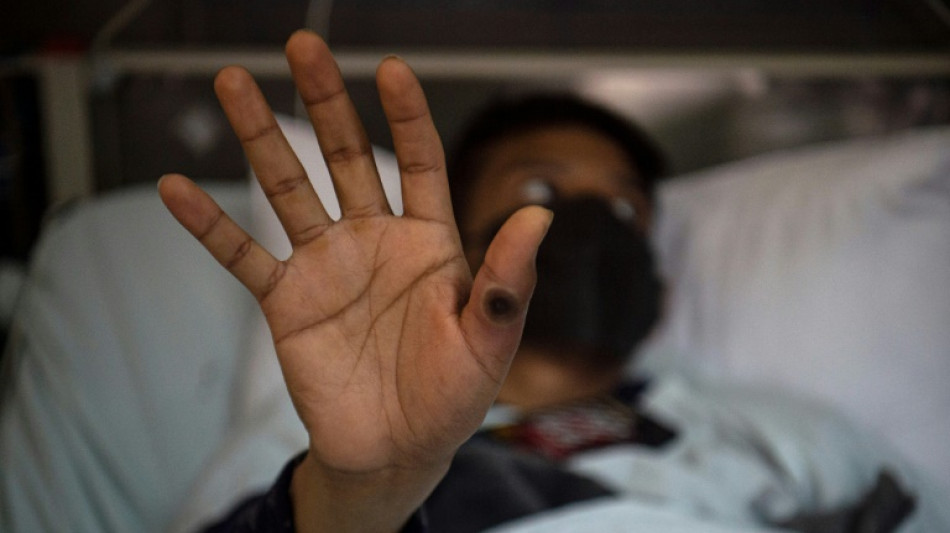
RYCEF
0.2000

Pakistan said Friday it had confirmed a case of mpox, a day after Sweden recorded the first infection outside of Africa involving a new, more dangerous strain of the virus that has killed hundreds in the DR Congo.
The mpox surge in Africa -- which has also affected Burundi, Kenya, Rwanda and Uganda -- prompted the World Health Organization on Wednesday to declare a public health emergency of international concern, the highest alarm it can sound.
Sweden's Public Health Agency told AFP on Thursday that it had registered a case of the Clade 1b subclade -- the same new strain that has surged in the DRC since September 2023, and the first such infection outside the African continent, according to the agency.
The patient was infected during a visit to "the part of Africa where there is a major outbreak of mpox Clade 1", epidemiologist Magnus Gisslen said in a statement from the agency.
The mpox strain that caused the case in Pakistan was not immediately known on Friday, the Ministry of Health said in a statement.
"The affected person has come from a Gulf country," the statement said.
The Pakistan patient is a 34-year-old man and "the first confirmed case we have this year" of mpox, said Irshad Roghani, director of public health in Khyber Pakhtunkhwa province, where the man is being treated.
"For genetic sequencing of the strain, we have sent samples to Islamabad," he added.
- More infections likely -
Following the discovery of the case in Sweden, the WHO warned further imported cases of the new strain in Europe were likely.
The body's European regional office in Copenhagen said it was discussing with Sweden how best to manage the case.
"The confirmation of mpox Clade 1 in Sweden is a clear reflection of the interconnectedness of our world," it said in a statement, adding it was "imperative that we don't stigmatise travellers or countries/regions".
"Travel restrictions and border closures don't work and should be avoided," it added.
China said Friday it will begin screening people and goods entering the country for mpox over the next six months.
The outbreak has centred on the DR Congo, home to around 100 million people.
Health Minister Samuel-Roger Kamba said in a video message this week that the country had seen nearly 16,000 "potential" mpox cases and 548 deaths this year.
He said the government had put in place a "national strategic plan for vaccination against mpox", and was working to implement other measures to control the outbreak.
Formerly called monkeypox, the virus was discovered in 1958 in Denmark, in monkeys kept for research. It was first discovered in humans in 1970 in what is now the DRC.
Mpox is an infectious disease caused by a virus transmitted to humans by infected animals, but it can also be passed from human to human through close physical contact.
The disease causes fever, muscular aches and large boil-like skin lesions.
The US Department of Health said Wednesday it would be donating 50,000 doses of an mpox vaccine to DRC, saying inoculation would "be a critical element of the response to this outbreak".
Danish drugmaker Bavarian Nordic said it was ready to produce up to 10 million doses of its vaccine targeting mpox by 2025.
There are two subtypes of the virus: the more virulent and deadlier Clade 1, endemic in the Congo Basin in central Africa; and Clade 2, endemic in West Africa.
A worldwide outbreak beginning in 2022 involving the Clade 2b subclade caused some 140 deaths out of around 90,000 cases, mostly affecting gay and bisexual men.
burs-smw/mca
H.Hajar--DT